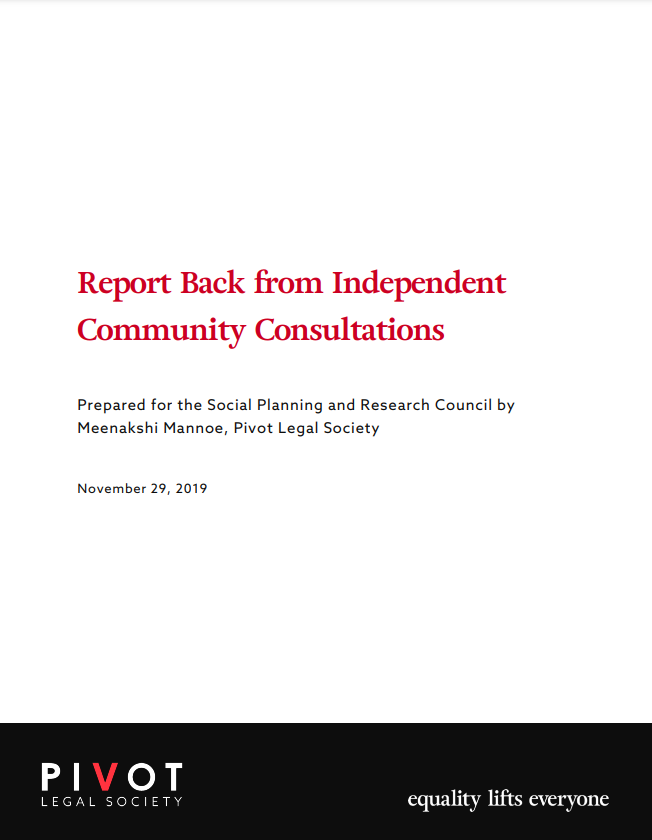Search the Baseline Project
To search the recommendations database, please visit the database main page.
To search the recommendations database, please visit the database main page.

In November 2019, Pivot Legal Society prepared a publication entitled “Report Back from Independent Community Consultations” for the Social Planning and Research Council. It looks at learning from independent community meetings on proposed legislation aiming to promote greater accessibility and inclusion in B.C.